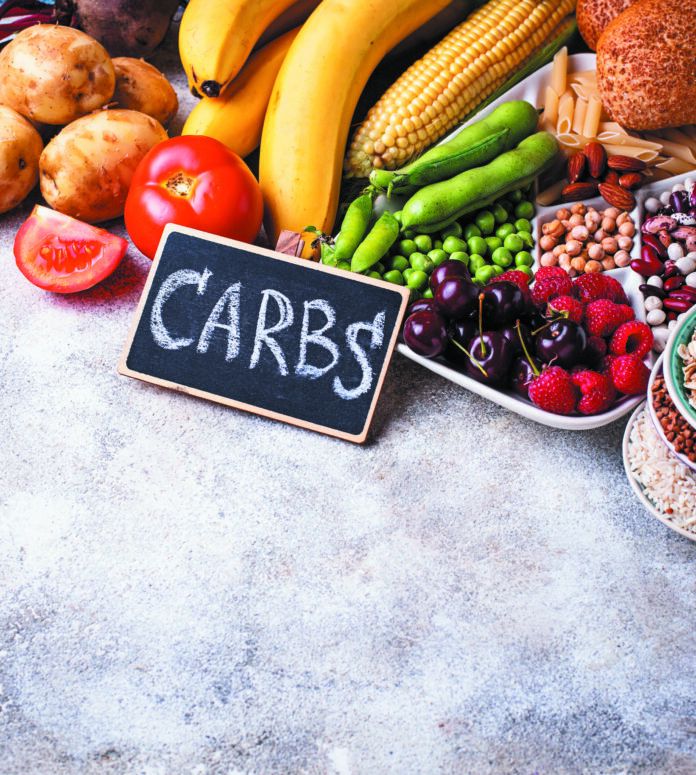Low-carbohydrate weight loss diets have become mainstream. Before jumping on the bandwagon, take a look at the answers to these common questions:
What is Low-Carb Eating? Carbohydrates (sugars, starches, and fiber) are found naturally in fruits, vegetables, legumes, nuts, seeds, and whole grains. But most carbohydrates in modern diets come from highly processed foods made with refined grains, starches, and added sugars.
A low carb dietary pattern generally includes less than 26 percent of daily calories from carbohydrates—less than 130 grams (g) per day for a 2000 calorie diet.
A very low carb diet provides less than 10 percent of calories from carbs (less than 50 g per day). When the body’s stores of glucose are used up, it must rely more on the breakdown of fatty acids for energy. Without adequate carbohydrate to complete this breakdown, compounds called ketone bodies form in a process called ketosis. Hence, very low carbohydrate diets are known as ketogenic diets.“While many people swear by the benefits of ketosis,” says Dariush Mozaffarian, MD, DrPH, dean of the Friedman School and editor-in-chief of Tufts Health & Nutrition Letter, “the scientific evidence remains unclear if ketosis is necessary to achieve the health benefits of low-carb diets.” Ketone bodies can have adverse effects on the developing fetus, so anyone who is pregnant or trying to become pregnant should avoid very low carb/ketogenic diets.
Will I Lose Weight? “The research we have to date shows that adhering to either a low or very-low carb diet plan can lead to significant weight loss,” says Mozaffarian. Short term studies suggest quicker weight loss with low carb versus low fat diets, but longer term data shows similar outcomes. “For some people,” says Mozaffarian, “the restrictions, lower variety, and potential exclusion of favorite foods can make low carb diets harder to follow for the long term.”
Is it Healthy? “Lowering carb intake, especially from processed sources, slows down the speed and amount of these fuels entering the bloodstream,” says Mozaffarian. “This has many health benefits.” Weight loss itself brings a wide variety of health benefits. Here is what we know so far:
Cardiovascular health: “Because these diets produce weight loss, cardiovascular risk factors generally improve,” says Mozaffarian.
Type 2 diabetes: Reducing carb intake improves glycemic (blood sugar) control. Additionally, any diet that results in weight loss is beneficial for prevention and treatment. Recent guidelines from the American Diabetes Association have included low carb eating as an option for the management of this common condition. However, there is potential for very low-carb eating to increase risk of a serious and potentially life-threatening complication called diabetic ketoacidosis in people who are taking medication for type 2 diabetes (particularly the class of drugs whose names end in -liflozin).
General health and nutrition: “Reducing the intake of processed grains and sugars is generally good for health, so low carb eating can produce many benefits,” says Mozaffarian. There are, however, some concerns: some low carb diet plans include intake of red meat—and especially processed meats—at levels associated with higher risk of death, cardiovascular disease, colorectal cancer, and diabetes. Additionally, many are low in healthy, natural sources of carbs like fruits, beans, and minimally processed whole grains. Very low carb (ketogenic) diets can cause constipation, fatigue, bad breath, and headache.
What to Do. “Reducing intake of processed grains and sugars, and replacing these with minimally processed foods like nuts, seeds, vegetables, and plant oils rich in unsaturated fats is a great choice for long-term weight control, metabolic health, and general health,” says Mozaffarian. “Avoiding healthy carb-containing foods like fruits, vegetables, beans, and minimally processed whole grains can help during an initial period of weight loss and blood sugar control, but, given the general benefits of these foods, avoiding them long-term is not a good idea. Additionally, while occasionally replacing some refined carbs with fish, poultry, eggs, plain yogurt, and cheese makes sense, don’t load up on red and processed meats.”
Include Healthy Carbs. Make the carbs you eat nutritious unprocessed or minimally processed foods (like fruits, vegetables, legumes, and whole grains) instead of refined carbs (such as foods made with white flour, sugar-sweetened beverages, salty snack foods, and sweet treats).
Watch the Meat. Don’t load up on red and processed meats. Instead, enjoy occasional poultry, eggs, plain yogurt, and cheese. Get your fats from healthy sources, like of fish, nuts, seeds, avocadoes, olives, and plant oils from fruits, nuts, and seeds.
Be cautious. Women who are pregnant or intend to become pregnant should not follow a very low carb diet, and people with type 2 diabetes should check with their health care provider for guidance.
























